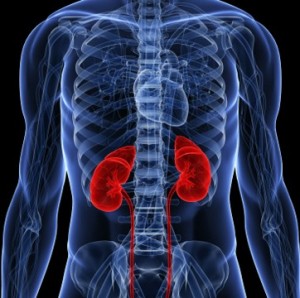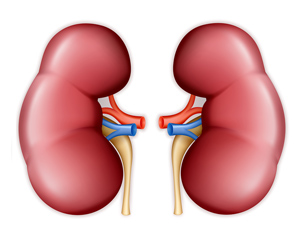 Kidney disease damages your kidneys, preventing them from cleaning your blood as well as they should.
Kidney disease damages your kidneys, preventing them from cleaning your blood as well as they should.
This damage can cause wastes to build up in your body and lead to other health problems, including heart disease, anemia, and bone disease. Chronic kidney disease eventually can cause kidney failure if it is not treated.
If you do have the disease, it’s important to be diagnosed early. Treatment can slow down the disease, and prevent or delay kidney failure. Because chronic kidney disease often develops slowly and with few symptoms, many people with the condition don’t realize they’re sick until the disease is advanced and requires dialysis. Blood and urine tests are the only ways to tell if you have chronic kidney disease.
Steps to help keep your kidneys healthy include the following:
- Keep blood pressure below 130/80 mm/hg
- Stay in your target cholesterol range
- Eat less salt and salt substitutes
- Eat healthy foods
- Stay physically active
- Take your medications as prescribed
If you have diabetes, take these steps, too:
- Meet blood sugar targets as often as you can
- Have an A1c test at least twice a year, but ideally up to four times a year. An A1c test measures the average level of blood sugar over the past three months.
If your blood pressure is high, check it regularly and get it under control to make sure your kidneys remain healthy. Talk to your doctor about medicines to lower your blood pressure.
Helping to prevent type 2 diabetes is another important step in preventing kidney disease. Recent studies have shown that overweight people at higher risk for type 2 diabetes can prevent or delay the onset of the disease by losing 5 to 7 percent of their body weight, or 10 to 14 pounds for a 200-pound person. You can do that by eating healthier and getting 150 minutes of physical activity each week.
via CDC Features – Diabetes, High Blood Pressure Raise Kidney Disease Risk.

